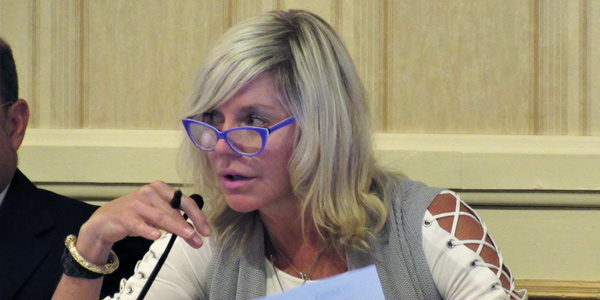By Amanda Durish Cook
ST. PAUL, Minn. — MISO’s Steering Committee will reopen nominations for vice chair of its newly formed Energy Storage Task Force after initiating what stakeholders are calling a confusing elections process.
The move has opened discussions that could have implications for how the RTO nominates and elects individuals to fill stakeholder group leadership positions in the future.
In selecting leaders for the task force, MISO’s Steering Committee deviated from standard practice by administering separate elections for the positions of chair and vice chair. While votes for the chair are already in (with results still unannounced), the election of the vice chair is still pending.
Steering Committee Chair Tia Elliott said that both candidates for chair expressed an interest in running for vice chair if they weren’t picked for the top position. As a result, a nomination for vice chair was submitted after the deadline, leaving the Steering Committee to decide whether to include the late submission for voting.
During a Sept. 20 Steering Committee meeting, Vice Chair Audrey Penner suggested reopening the nomination process but including all previous nominations, a motion committee members backed by consent.
“That’s the only way I see getting around this confusion,” Penner said.
In explaining the reason for the split elections, Elliott said the Steering Committee is under pressure to produce stakeholder leadership for the task force so the group can begin work on pressing energy storage issues. MISO has already assigned Chief Compliance Officer Joseph Gardner to serve as liaison to the group, and stakeholder input is needed as the RTO begins to craft market rules and definitions to manage storage participation in the market. (See Progress Builds for MISO Energy Storage Effort.)
“There’s a push to get this off the ground,” Elliott said.
Some Steering Committee members asked who had the authority to separate the voting in the first place. Others said moving deadlines for late nominations could result in increased confusion during elections for other stakeholder committees.
Elliott said MISO staff and Steering Committee leaders decided to split the election, as the RTO’s Stakeholder Governance Guide is silent on the issue of moving election dates.
“That’s stepping way outside the governance guide. I’m concerned a decision like that has been made,” said Northern Indiana Public Service Co.’s Bill SeDoris.
“I made the decision. I will not apologize for that,” Elliott said, pointing to the scarcity of volunteers within the MISO stakeholder community to take on leadership positions.
“If we have a deadline, in fairness to the process, we need to stick by that date,” Penner said of the possibility of allowing a late nomination.
In response to a question by Ameren’s Ray McCausland about why the Steering Committee didn’t simultaneously solicit nominations for chair and vice chair, Elliott said nominations were held in conjunction, but elections were held separately.
“The way this ended up is a bit cumbersome,” McCausland said.
Elections for chair and vice chair for all MISO stakeholder committees and groups are held via electronic ballot among MISO members with voting rights.
The Steering Committee will next month explore possibly amending elections provisions in the Stakeholder Governance Guide, Elliott said. She asked stakeholders to email MISO’s stakeholder relations team with opinions on the subject. The committee will consider revising elections rules after reviewing responses and holding a discussion on the topic.






